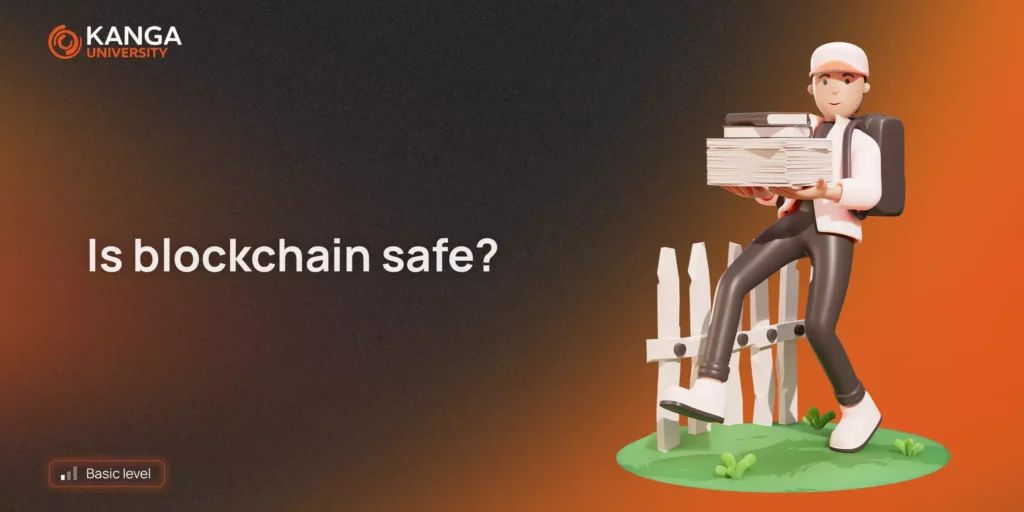

The title of our lesson today suggests a lot. However, the answer to this question is not straightforward. The nature of the blockchain and its technology means that it is generally secure. Nevertheless, they are many dangers lurking in the world of cryptocurrencies, that it cannot fully guard against.
Security of blockchain technology
Any expert on blockchain technology will assure you that encrypting the blockchain and its data, is the most secure ecosystem in the world. Of course, we tentatively agree, but what are we really talking about? As you know from our previous lessons [Link – what is blockchain and how it works – beginner level], once blocks of data are added to the blockchain, they can no longer be changed.
The blocks are verified using a consensus mechanism that effectively eliminates fraudulent transactions and hacker attacks. Moreover, access to the main base of the network is encrypted. These factors make the blockchain ecosystem one of the most secure yet.
Blockchain vs hackers
We have come to the conclusion that blockchain is very secure.
The entire architecture of the blockchain systems behind cryptocurrencies, NFTs and applications has built-in security features. Once the data is added to the blockchain, the hacker cannot change it. So, how is it possible that millions of cryptocurrencies are attacked by hackers every year?
True, blockchain technology itself is secure, but if we do not maintain basic measures and aren’t concerned about the security of the blockchain and our cryptocurrencies, we expose ourselves and the entire ecosystem to tragedy. What, then, is worth paying attention to?
Security of your equipment. 2FA, not going to suspicious sites or not logging into your cryptocurrency profiles while you are away from your computer. Remember that blockchain accounts are anonymous. One mistake can cost you a lot, and the probability of finding out who is behind it is low.
Strong passwords. Cryptocurrency accounts need to be secured with a strong password that only you know about. If you store your password on your computer – hackers are already rubbing their hands.
Use only Blockchain and DeFi applications that you trust and are verified. Do not log on to suspicious websites or use equally suspicious links.
Don’t easily entrust your money, especially where you are accompanied by any concerns.
Read about cryptocurrency scams. Ponzi schemes, or “pump and dump”. Knowledge allows you to avoid unpleasant situations. In “Pump and dump”, scammers introduce cryptocurrencies or tokens, creating an artificial increase in their price. They use popular websites or social media in their operations. They then quickly disappear from the market and the assets you hold become worthless.
Security on blockchain platforms. What we have already mentioned. Before you transfer your funds, ask what security measures they take. Ask about any certifications and security features.
Don’t go on suspicious sites. The Internet is accessible to everyone and offers information about cryptocurrencies and projects, but not all of them are true and safe.
Use only applications and systems that you trust. New, unproven applications and networks are a great breeding ground for cybercriminals. They can exploit a vulnerability in its code and get the information they need to clean out your wallet. This is something you definitely would not want.
Choose the platforms on which you trade and obtain information about cryptocurrencies and blockchain technology carefully. Many exchanges use measures on par with bank security.
Also take care with the security of your transaction. Double-check the address you’re sending funds. One mistake, will cost you the entire lost of funds. And for wrongly sending your cryptocurrencies, there is unfortunately no solution. We have written about how to transfer cryptocurrencies securely here.
Summary
So, you can see that blockchain itself is secure. Many things really depend on us and our security measures that we use when exploring cryptocurrency platforms daily. Information on how to protect yourself is easy to find. The Blockchain has the right safeguards in place. You, we remind you to protect your assets, do business where it is safe to do so. Moreover, entrust your funds to platforms that are proven.

